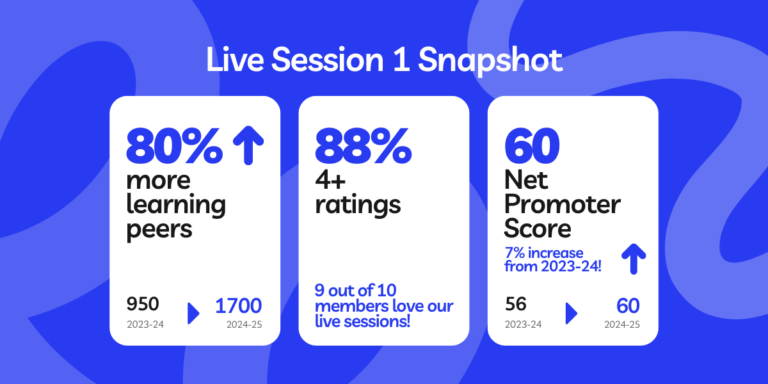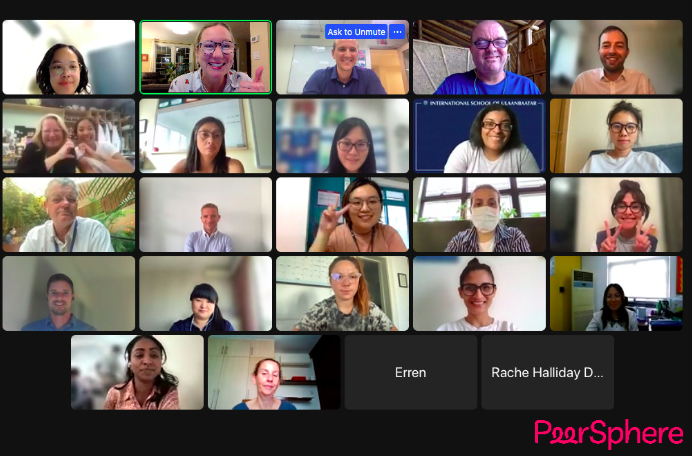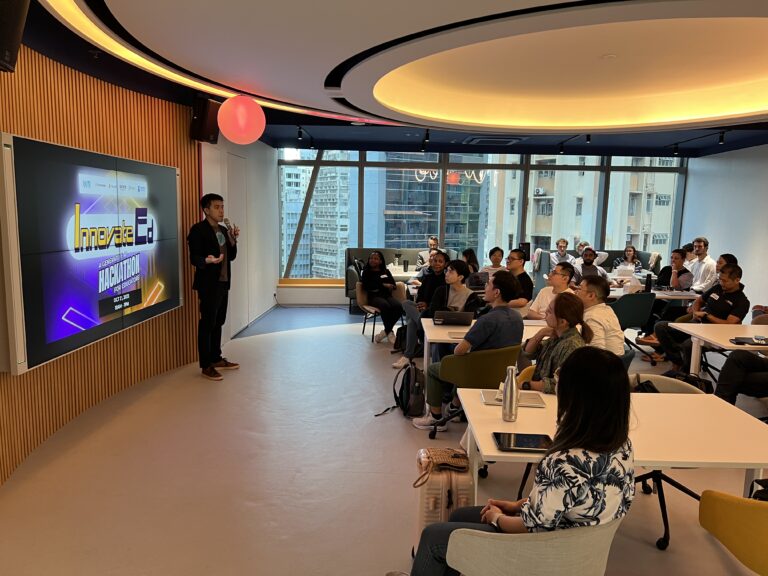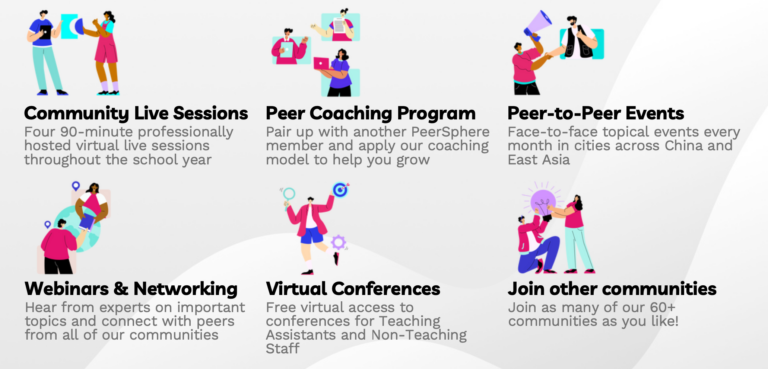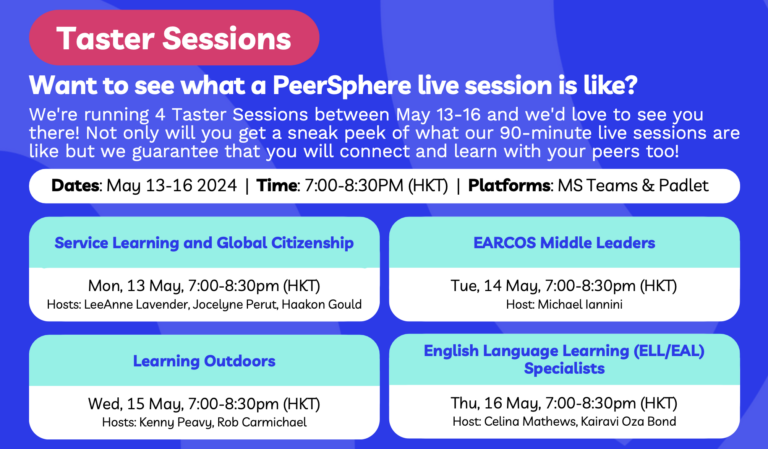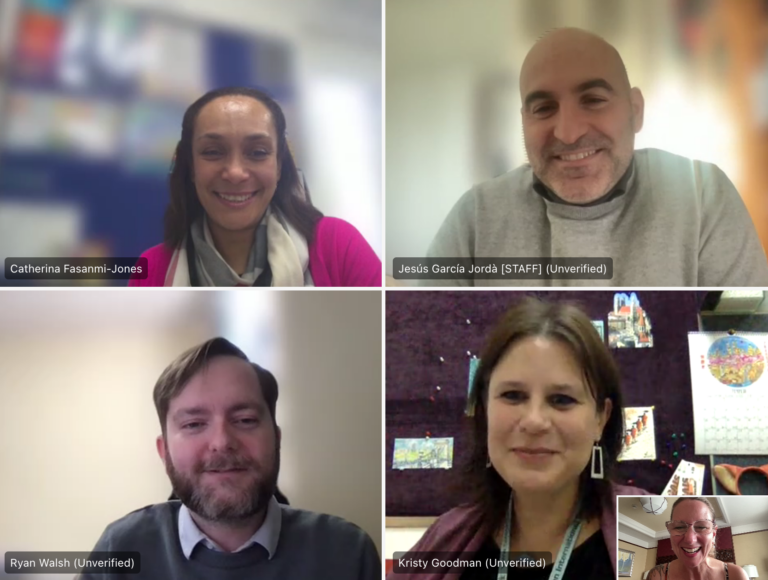 In virtual professional learning, there’s a familiar moment of hesitation: your hand hovers over the unmute button as you weigh whether to take the risk of speaking up. You wonder if your question will add value or if it might reveal an embarrassing gap in your understanding. It’s tempting to stay silent, but choosing to contribute can make a learning session far more impactful—not only for you but for everyone in the group.
In virtual professional learning, there’s a familiar moment of hesitation: your hand hovers over the unmute button as you weigh whether to take the risk of speaking up. You wonder if your question will add value or if it might reveal an embarrassing gap in your understanding. It’s tempting to stay silent, but choosing to contribute can make a learning session far more impactful—not only for you but for everyone in the group.
One of the most common reasons for this hesitation is the simple lack of familiarity with the group. In a room of strangers, it’s natural to feel self-conscious, unsure of how your words will be received. Without established rapport, speaking up can feel vulnerable and risky—especially in a professional setting where the stakes may feel high. The anonymity of virtual spaces, with everyone’s faces reduced to small, often muted squares, only adds to the sense of distance. Without the body language and social cues we rely on in person, it’s easy to doubt whether your voice belongs in the conversation.
But here’s why it is better to speak up than stay quiet. For one, sharing turns a passive experience into an active one. Instead of simply consuming information, you’re engaging with it, testing your ideas, and opening the door to new perspectives. One question or comment can change the energy in a group of educators, sparking new thoughts and deepening the discussion for everyone. By speaking up, you’re often doing a service for others, signaling to them that it’s okay to share and question too.
And what if someone silently judges you? Honestly—who cares? Every space, virtual or otherwise, has its own range of perspectives. It’s impossible to control how everyone will react, and trying to do so is a trap that only holds you back. Someone’s silent judgment, if it even exists, is not your responsibility, nor does it diminish the
value of what you’ve shared. The far more likely outcome is that your voice will resonate with others, invite new insights, or give someone else the courage to contribute.
For those still on the fence about speaking up, here’s some advice:
- Think of It as a Contribution, Not a Performance: Speaking up isn’t about impressing others or being the expert. It’s about adding a unique piece to the conversation. Treat it as a small offering rather than a polished presentation.
- Start Small: If nerves hold you back, ease in with something simple—a quick comment, a question, or a reflection on what resonated with you. Small steps lower the stakes and often lead to more natural engagement.
- Focus on Curiosity, Not Certainty: Rather than striving for the “right” answer, share something you’re curious about. Curiosity shifts the focus from you to exploration of an idea and often sparks richer dialogue.
- Remember the Ripple Effect: Think about how often someone else’s comment has sparked something valuable for you. By stepping in, you might be giving others the encouragement they need to do the same.
- Recognize the Cost of Silence: Staying silent may feel safer, but it comes at the cost of connection and growth. Often, taking the small risk of speaking up leaves you with a sense of accomplishment and a stronger connection to the group.
In a learning community like PeerSphere, this culture is key. PeerSphere Community Hosts cultivate an environment where educators feel supported enough to ask questions, share ideas, and challenge assumptions. They encourage small contributions to help participants find their footing, validate curiosity over certainty, and model openness by sharing their own questions and insights. By welcoming each contribution as a valuable piece of the group’s learning journey, they create a space where even tentative voices are celebrated.
This approach goes beyond creating a “safe space” in the typical sense. It builds a culture of genuine engagement, where educators know their voices are valued. By choosing to step forward and take a small risk, you’re not only growing yourself but also helping to create a community that thrives on open inquiry and shared learning. In a world where we increasingly depend on connection and collaboration to navigate complex challenges, speaking up isn’t just better—it’s essential.



